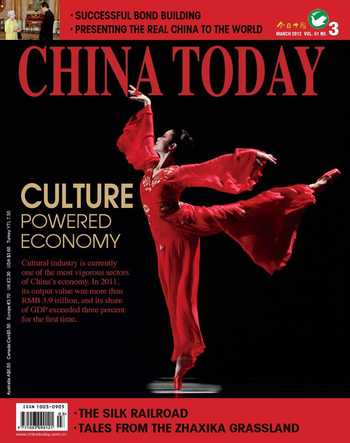No man is an island
No man is an island, entire of itself.– John Donne, poet ( 1572 – 1631)
LAST month I celebrated the fortieth anniversary of my relationship with Stephanie, the woman who is now my wife. That event reminded me that great partnerships often face obstacles from the very beginning, or encounter rocky paths along the way. In our case, the starting point was when Stephanie accidentally broke my nose! (She argues, of course, that its now an improvement).
So it was, too, between China and Britain. This year we recognize 40 years since our two countries agreed to exchange Ambassadors at the most formal level, though we had varying degrees of diplomatic relations since the 1790s, in particular during the reign of Britains Queen Victoria. The reasons for these long-standing arrangements were straightforward: we were both nations of considerable political power, and we shared an interest in opening up new avenues of trade as both importers and exporters.
There were, of course, problems to be faced, largely because we were of such alien cultures, with very little experience of the other country and with inadequate command of each others language. Tensions were inevitable. As Chinas State Councilor Dai Bingguo said on a recent visit to Britain: “China and Britain have different histories, cultural traditions and social systems. Its unavoidable that we may disagree here and there.” But he continued by noting, almost in the poetic tradition of Xu Zhimo, that “the world is very much like a garden whose most beautiful season comes when all kinds of flowers blossom.” We must indeed make allowances for those cultural distinctions if we are to find common ground that we feel comfortable sharing, but we will also experience moments when we feel a need to assert ourselves and to stand our ground.
It was in 1950 that the United Kingdom formally recognized the legitimacy of the Peoples Republic of China, but a further 22 years passed before our declarations moved to the next level. What were the obstacles that stood in our way? The key issues revolved around the status of Taiwan and Hong Kong, and our ideological positions in relation to the Korean War. We experienced outbursts of violence between us, and harsh words were traded. But there were other matters at stake, too: trade remained an important item on the long-term agenda; Chinas rise and Britains steady decline as a global economic power meant that we were both seeking our future positions in the world order; and neither country believed in aggression as the solution to political tensions.
Our governments now recognized that they needed to find accommodations that would permit us honorably to move from being adversaries to friends and partners in a host of ways. This formula has not changed since then: in order to “pursue harmony and win-win solutions …. outdated ideas and practices must be dropped and new visions, policies, behaviors and governance approaches must be developed,” as Dai Bingguo was to say many years later, echoing the sentiments of British Prime Minister David Cameron, who had called for our countries to become“partners in growth.”
And so we set about establishing solid diplomatic relations, thereby opening the door to a workable and just solution to the Hong Kong issue and, crucially, developing a closer dialogue in relation to the many conflicts that have ravaged other countries in the past 40 years. We still disagree on some foreign policy matters, and we will continue to do so for a very long time, but we are at least listening. Thats a very big first step.
What else has happened since 1972? Business has been reestablished as a vibrant component of our relationship, with Britain now a significant trading partner and investor in China, and vice versa. Education and knowledge exchanges are now occurring at a rate we could barely have dreamt of 40 years ago, as is evidenced by Chinese Ambassador Liu Xiaomings regular visits to Cambridge, our Vice-Chancellors equally regular reciprocal trips to China, and the success of my business partnerships with Chinese publishers.
Above all, though, I see real movement in that crucial objective of achieving improved mutual understanding of each others culture. Whether that shift is manifested by iconic moments such as Cambridge University Press adoption of giant panda Jian Qiao in Chengdu and the delivery of her cousins Tian Tian and Yang Guang to Edinburgh Zoo; or through the publication of ever more books about China in the West and Britain in China; or through increasing exchanges of arts programs and museum displays; all these events are chipping away at entrenched views and are daily fostering closer understanding.
There remains a long way to go along the rocky path of friendship, but, as John Donne asserted, neither China nor Britain can afford to behave as an island, aloof from other nations. The UK is simply too small to stand without friends, and China is still building bridges across several cultural divides. While I dont share the gloomy outlook of Canadian businessman/diplomat Maurice Strong, who insisted that “we must all go down the same path: there may not be another chance,” there is a lot to be said for State Councillor Dais view that “cooperation is our only choice.” That sounds like smart politics to me!

